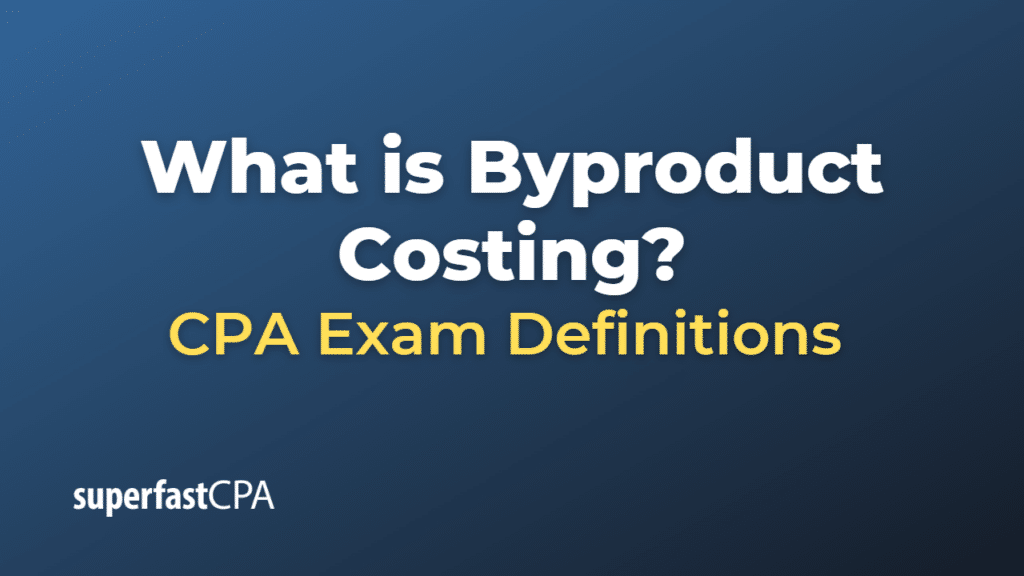Byproduct Costing
Byproduct costing is a method of allocating costs to the main product and byproducts in a production process. In industries where production results in multiple outputs, some of which are of lesser value than the main product, these lesser-value outputs are considered byproducts. Byproduct costing is essential to determine the cost of producing the main product accurately and to assign appropriate costs to the byproducts.
In byproduct costing, the primary focus is on accurately assigning costs to the main product, and any revenues generated from the sale of byproducts are typically treated as a reduction in the production cost of the main product. There are several methods for allocating costs to byproducts, including the sales value method, the production quantity method, and the constant per-unit method.
For example, in the petroleum refining industry, crude oil is processed to produce various products, including gasoline, diesel, and jet fuel (main products), as well as asphalt, lubricants, and petroleum coke (byproducts). Byproduct costing helps allocate the costs of refining crude oil among the main products and byproducts to accurately reflect their production costs.
Example of Byproduct Costing
Let’s use the petroleum refining industry example for byproduct costing. In this example, we will use the sales value method for allocating costs.
Assume a refinery processes 10,000 barrels of crude oil at a total cost of $500,000. After processing, the refinery produces the following products and byproducts:
- Gasoline: 4,000 barrels (main product)
- Diesel: 3,000 barrels (main product)
- Jet Fuel: 1,000 barrels (main product)
- Asphalt: 1,500 barrels (byproduct)
- Lubricants: 400 barrels (byproduct)
- Petroleum Coke: 100 barrels (byproduct)
The sales values of each output are as follows:
- Gasoline: $150 per barrel
- Diesel: $140 per barrel
- Jet Fuel: $160 per barrel
- Asphalt: $60 per barrel
- Lubricants: $80 per barrel
- Petroleum Coke: $40 per barrel
First, calculate the total sales value of each product:
- Gasoline: 4,000 * $150 = $600,000
- Diesel: 3,000 * $140 = $420,000
- Jet Fuel: 1,000 * $160 = $160,000
- Asphalt: 1,500 * $60 = $90,000
- Lubricants: 400 * $80 = $32,000
- Petroleum Coke: 100 * $40 = $4,000
Next, calculate the total sales value of all products: $600,000 + $420,000 + $160,000 + $90,000 + $32,000 + $4,000 = $1,306,000
Now, allocate the cost of $500,000 to each product based on its proportion of the total sales value:
- Gasoline: ($600,000 / $1,306,000) * $500,000 = $229,709
- Diesel: ($420,000 / $1,306,000) * $500,000 = $160,646
- Jet Fuel: ($160,000 / $1,306,000) * $500,000 = $61,263
- Asphalt: ($90,000 / $1,306,000) * $500,000 = $34,456
- Lubricants: ($32,000 / $1,306,000) * $500,000 = $12,252
- Petroleum Coke: ($4,000 / $1,306,000) * $500,000 = $1,534
In this example, the cost allocated to the main products (gasoline, diesel, and jet fuel) and byproducts (asphalt, lubricants, and petroleum coke) reflects their proportion of the total sales value. This allocation helps determine the production cost of each product more accurately.













